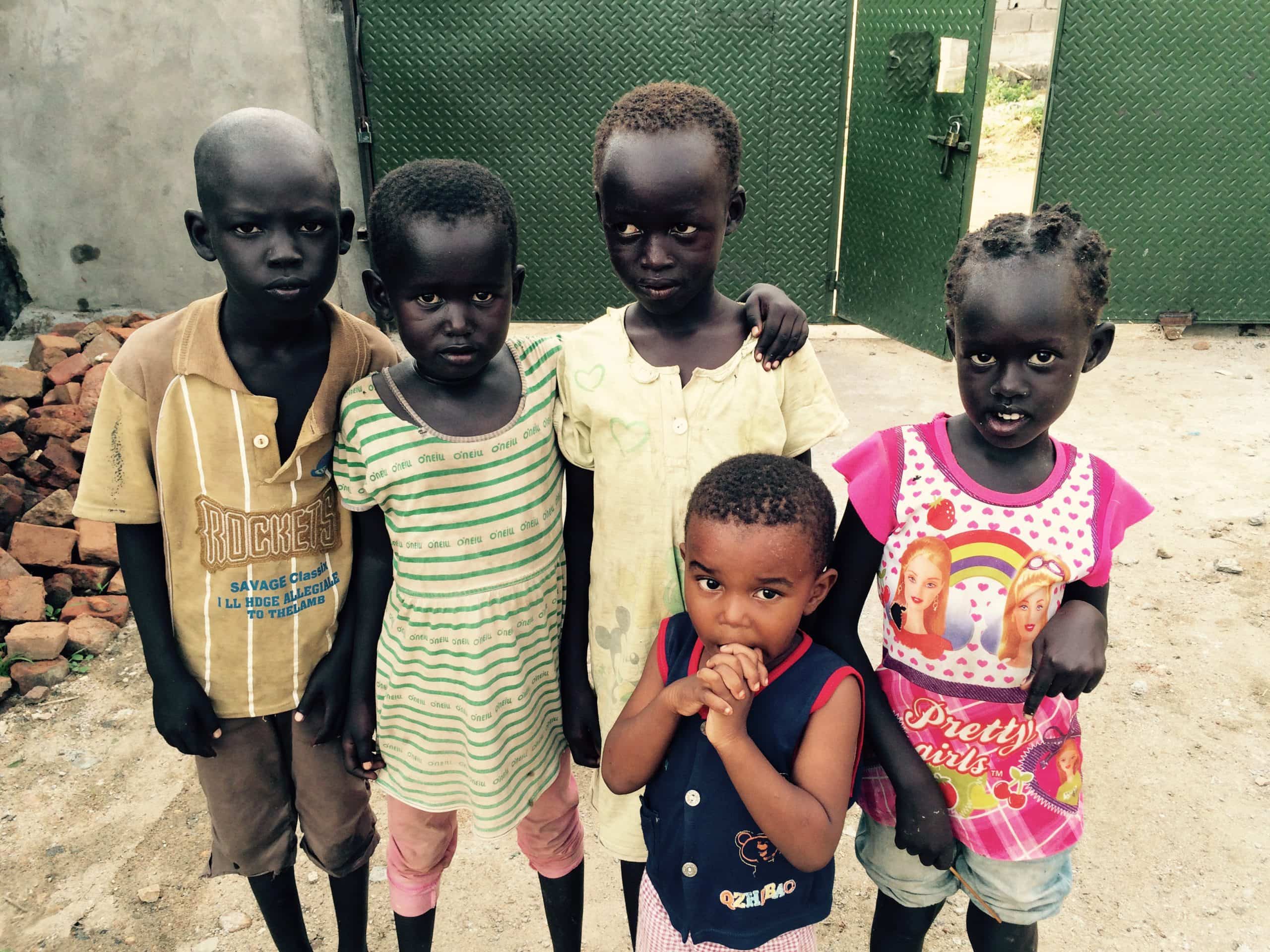by Christine Jones
“It is human nature. As they grow up, they keep killing each other!” These words from Archbishop Daniel Deng of South Sudan are sobering. And indeed the situation in South Sudan is heartbreaking. With the worst humanitarian crisis occurring since World War II, the fact that over 20 million people in four countries are starving seems simply overwhelming.
However, in South Sudan, the church continues to be a source of hope for those suffering. For example, many internally displaced people have arrived at a camp on the Diocesan compound in Wau, South Sudan, seeking help. Wau Diocese covers two out of the 10 States of South Sudan and is located in the northwest of the country. It is closer to the border with Sudan than to the capital of South Sudan in Juba. Violence has led many to abandon their farms and flee for safety. They arrive at the church compound where they not only receive food but also pastoral help.
Many of you answered the call of Archbishop Foley Beach to help the South Sudanese through the Church in South Sudan. Food was distributed across the country. Some of this aid reached Wau. But how did the Diocesan staff know how to distribute it to the 5,000 people camped out in their compound?
Rev. Samuel Mabith Madut, the Diocesan Administrative Secretary explains,“Before distributing food, we first met with community leaders to identify the most vulnerable people. We made sure that the community leaders we consulted were representatives of all different communities living in the camp.”
Tribal-based violence has been at the heart of the conflict in South Sudan, so any relief efforts must rise above tribal tensions and include reconciliation. The community representatives, both male and female, identified the most needy: nursing mothers, pregnant women, the elderly and disabled, and orphans and children separated from their parents.
As they handed out food, “we also took advantage of the opportunity to preach about forgiveness, reconciliation, and peaceful coexistence among the communities within the camp and also when they return to their villages,” Rev. Samuel continues.
This is not new for South Sudan, especially for the Diocese of Wau. In 2012, Bishop Moses Deng Bol of the Diocese of Wau reflected,“I think most of the people who are not believers will really see that the church is meeting not only the spiritual needs – which I came to do – but also the physical need. I believe that this will also result in a peace building as [this] is an area that has been dominated by tribal conflict. And I am hoping that we will use this project to bring communities together for talking about health, water, sanitation, about cleanliness. But then we will also talk about peace.”
This statement was in response to an aid effort to bring clean water to Wau, but the opportunity to be the hands and feet of Jesus in ways that meet the needs of the whole person has not changed. Bishop Moses is now an Archbishop responsible for a larger area of South Sudan. Please pray for him as he ministers to an increasing number of refugees.
In some ways, this money is just a drop in the bucket for meeting the true needs. But God is at work. Archbishop Daniel Deng says that the South Sudanese government is looking for ways to have a dialogue to end the war. They have approached the church to help with these conversations, having seen the reconciliation happening among church communities. Providing an example to the civil government is an exciting opportunity for the church. God will surely use it!






